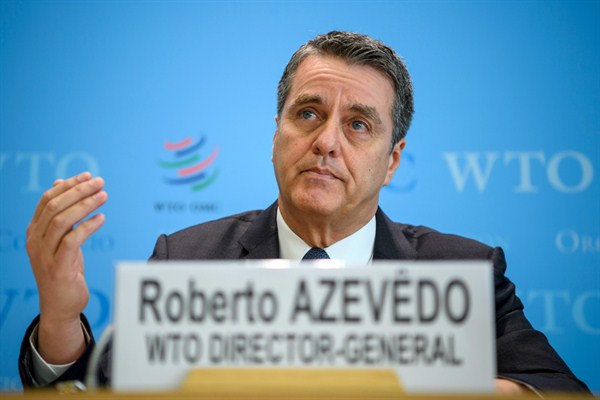The World Trade Organization’s woes began long before Donald Trump was inaugurated as America’s president, and many countries are to blame. The latest round of global trade negotiations has been stalled for a decade and there is still no clear way out of the impasse. India insists on resolving long-standing problems, such as trade-distorting agricultural subsidies, before the WTO can begin to negotiate any new issues. China has no interest in taking a leading role on many pressing issues, such as regulations on state-owned enterprises, which might impinge on its industrial policies. Both Presidents Barack Obama and Donald Trump undermined the operation of the WTO’s dispute-settlement system by disrupting the appointment of members to the body overseeing appeals. And the European Union has been among the most prolific of those negotiating regional trade agreements outside the WTO.
The threat to the WTO’s continued viability ratcheted up notably, however, after Trump took office in January 2017. He has taken unilateral trade actions in violation of WTO rules and has reportedly told aides on multiple occasions that he wanted to withdraw entirely from the organization. The increased threat has, in turn, triggered renewed efforts to reform and strengthen the WTO. Officials from Australia, Brazil, Canada, Chile, the EU, Japan, Kenya, South Korea, Mexico, New Zealand, Norway, Singapore and Switzerland met in Geneva in September and discussed WTO reform proposals from the EU and Canada. Trade ministers representing those countries plan to continue the discussions in Ottawa later this week.
Despite Trump’s rhetoric, U.S. Trade Representative Robert Lighthizer met with his counterparts from the EU and Japan in late September to identify areas for cooperation. Indeed, it was on the same day that Trump told other leaders gathered at the United Nations that his administration had rejected “the ideology of globalism” in favor of “the doctrine of patriotism.” In a joint statement, however, Lighthizer, EU Trade Minister Cecilia Malmstrom and Japanese Minister of Economy, Trade and Industry Hiroshige Seko issued a joint statement pledging cooperation in areas of mutual interest, including China’s allegedly unfair trade practices—though this was not named—along with digital trade, e-commerce and WTO reform.

